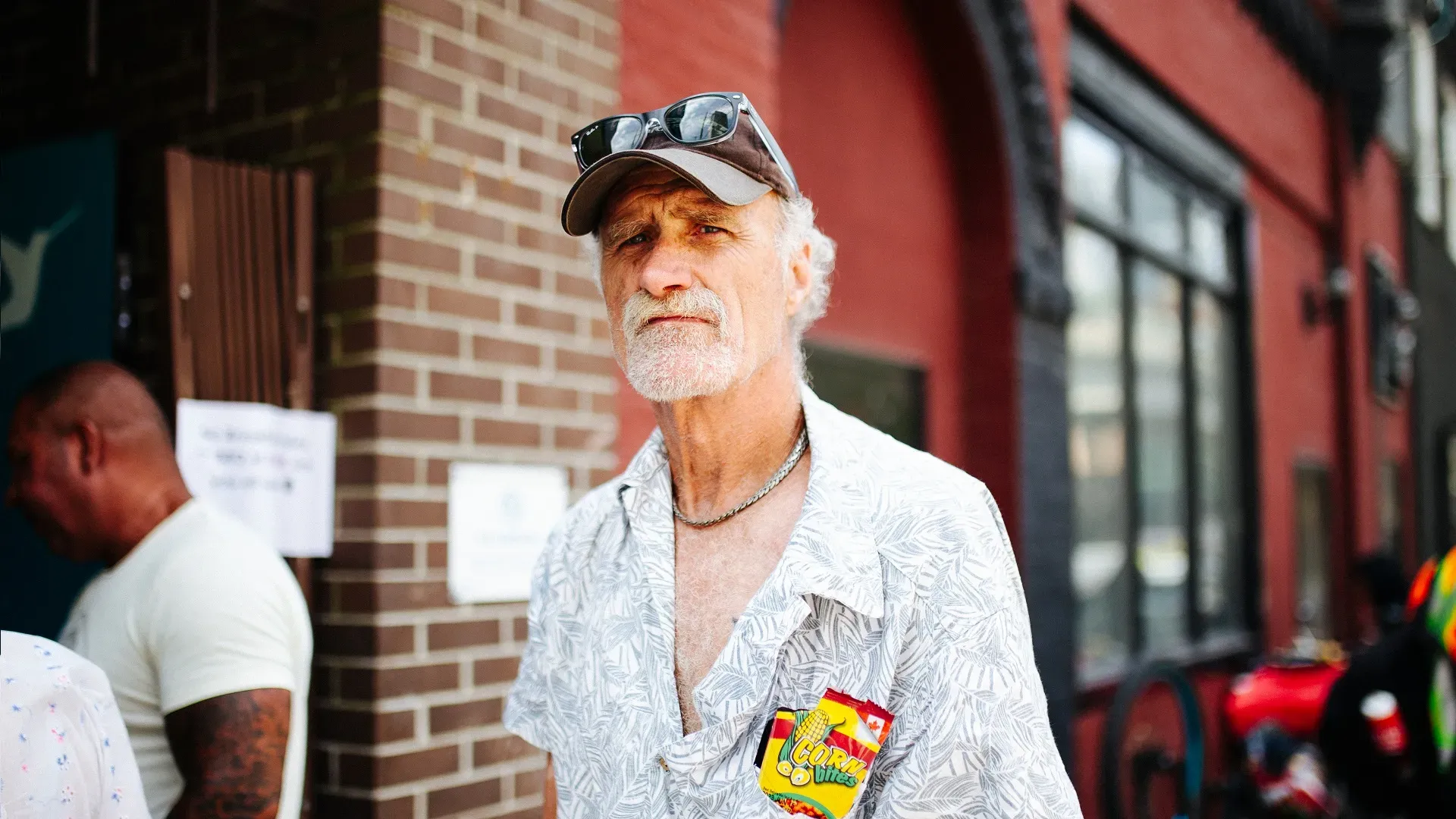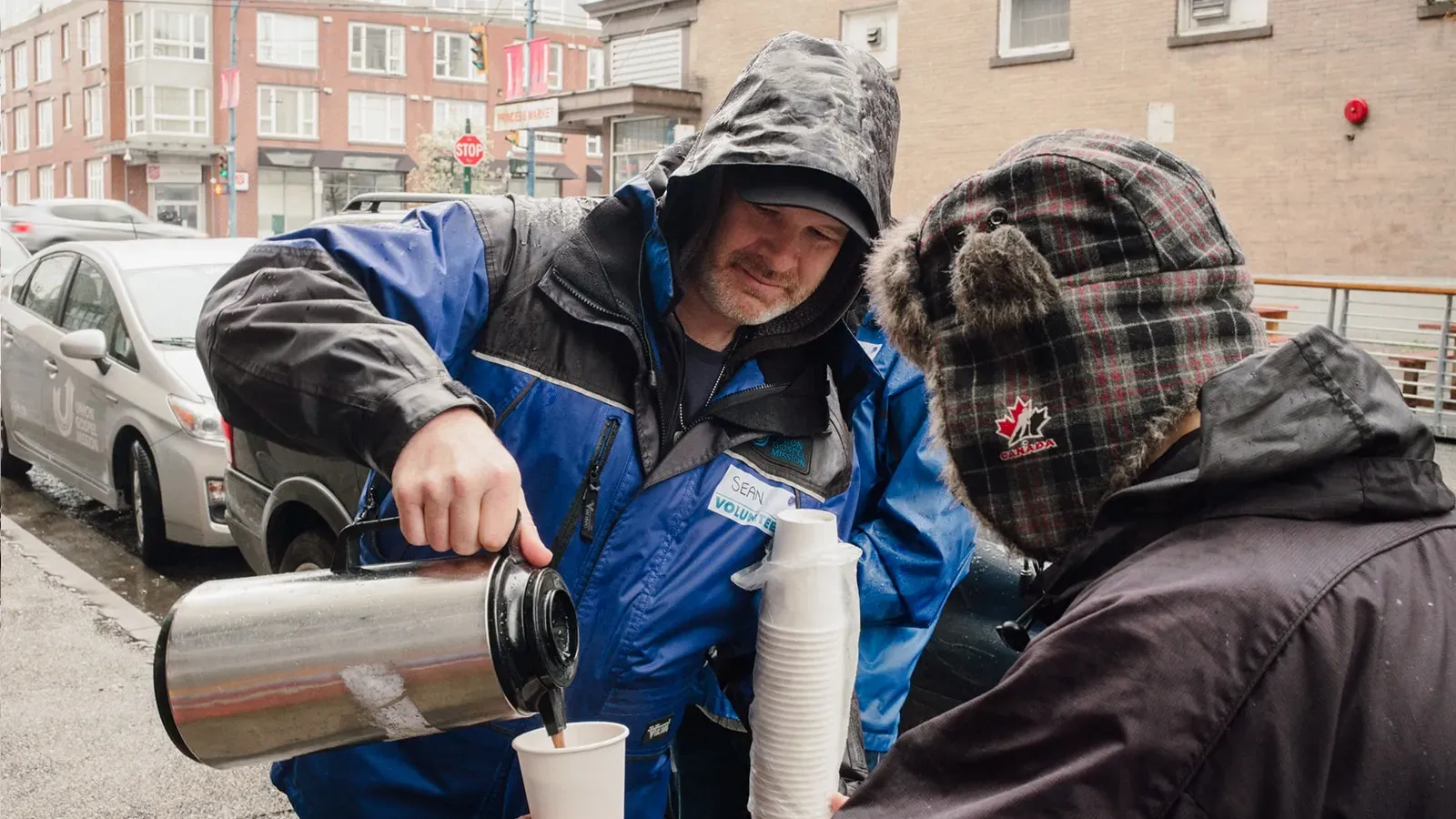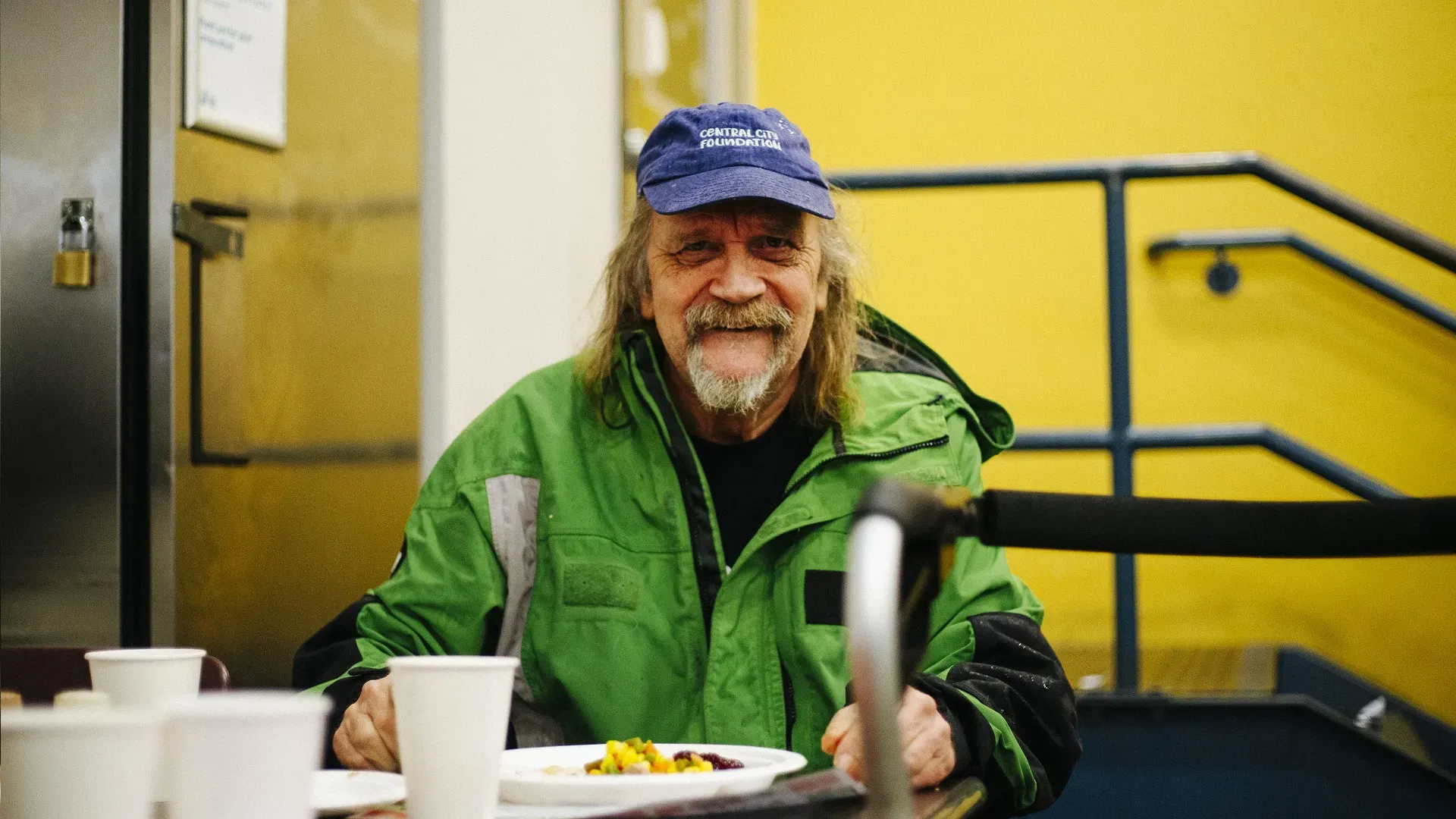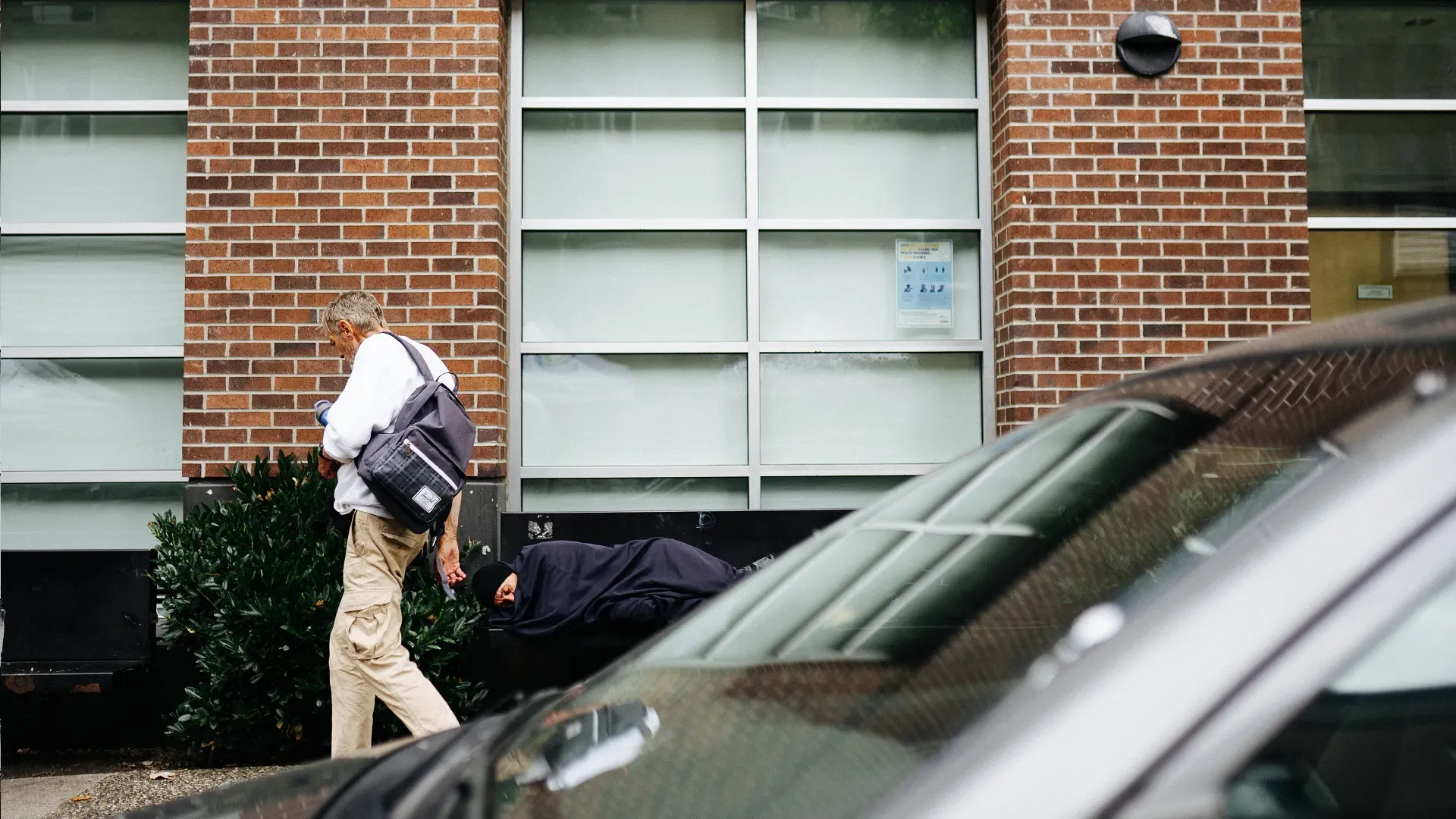There are a lot of stereotypes out there about people who are experiencing homelessness. You’ve probably heard some of them: statements like “People just need to get a job” or “They wouldn’t be outside if they didn’t want to be.” These kinds of stereotypes have a way of separating people into groups and creating confusion instead of compassion.
And with homelessness on the rise, these stereotypes have gotten louder. Last year, 4,821 people in Greater Vancouver identified themselves as someone experiencing homelessness. In Victoria, that number was 1,665 — which is a higher number, proportionally, than Greater Vancouver. It’s not surprising that people have developed theories and drawn their own conclusions about homelessness, but it is harmful when these hypotheses misjudge our neighbours.
At Union Gospel Mission (UGM), we’re hoping to debunk narratives like these. We’ve prepared this resource to help people grow their understanding of homelessness so that harmful stories are replaced with truthful compassion.
Misconception #1: “People experiencing homelessness just need to get a job.”

One common stereotype about people experiencing homelessness is that they need to get a job. It can be easy to think that there is some truth to that stereotype, given that only 9% of respondents to the Greater Vancouver Homeless Count reported having full- or part-time work, but addressing homelessness with employment is not as straightforward as it sounds. Simply ‘getting a job’ still isn’t a golden ticket to exiting homelessness — and landing a job in the first place isn't as clear-cut as people often assume.
People who are experiencing homelessness face added barriers to employment because they don’t have access to the same resources a housed individual would. It can be hard to land or hold a job without everyday necessities like:
- A permanent address.
- Personal identification documents.
- Access to showers and clean clothing.
- Transportation.
For those struggling with homelessness, barriers involving personal identification loom the largest. Aside from the personal details required by résumés and applications, there’s the bigger question of actually becoming employed: many employers can’t hire candidates who don’t have a permanent address.
“Get a job” rhetoric also overlooks people in our communities who are facing overlapping discrimination. Age is a barrier for some people who are experiencing homelessness: research shows that employers tend to believe negative stereotypes about older workers. People living with disability, too, face discrimination when searching for work, and many who rely on disability support are living well below the poverty line.
Finally, it’s important to note that in the face of skyrocketing living costs, low-paying jobs, and underemployment, even people who have found work may not be able to afford or access safe housing. Reflecting the wider Homelessness Count results, a percentage of the men in UGM’s Shelter already have work of some kind and continue to struggle to find an affordable place to live.
“Often, when people see someone who’s experiencing homelessness, they don’t see who’s really there. A lot of us on the streets actually have an education or professional jobs. I have a business administration certificate, I’ve run restaurants, but nobody knows that. They only knew me as homeless. People need to understand more about why we are homeless instead of making judgments.” — James*, UGM Community Member
Stressing these details to someone who might have room to grow their understanding of homelessness could help with debunking this belief.
Misconception #2: “All people experiencing homelessness are struggling with addiction and mental illness.”

Another common misconception about people experiencing homelessness is the belief that they all struggle with substance use or poor mental health.
“I think there’s a big narrative around people who are experiencing homelessness, that the reasons why they’re homeless is because of mental health or drug consumption,” says Demetrius, Case Management & Shelter Manager at UGM.
But this narrative proves to be a myth when you look at the numbers. Only a little over half — 53% — of people self-identified as experiencing homelessness because of a mental health struggle in the latest Homeless Count in Greater Vancouver. It also overlooks the way experiencing precarious housing affects mental health: single room occupancy (SRO) buildings have been labelled “mental health risk environments” that lower people’s ability to cope with stress. In other words, for the people self-reporting a mental health struggle, it might be that their mental illness led them into homelessness — or it might have been homelessness that led them into reduced mental health.
When it comes to addiction, 71% of people who identified as experiencing homelessness also reported as people who struggle with addiction. That number is high — but it’s not everyone. And it’s key to note that 47% of people reported being homeless from a diagnosed medical condition that wasn’t addiction or mental health. Housing precarity has been shown to increase frailty and negative outcomes for seniors, for example, and that’s just one population detrimentally affected by a lack of safe housing. The reasons people find themselves without a home can’t be reduced to any one factor.
Instead, Demetrius recommends breaking down stereotypes by treating each other like what we are — people. “We have to start interacting with people, getting to know people, humanizing people that we're working with or coming across in our general life.” That’s the pathway to true understanding and empathy.
Misconception #3: “Homelessness is a choice.”

People who have room to grow in their understanding of homelessness might be convinced that people are choosing to be homeless.
But by making a societal issue into an individual one, we overlook the many systems that bring people to where they are — and we remove the collective responsibility to respond. For people experiencing homelessness, the reality is they’re often pushed into homelessness by a variety of factors they can’t control, like:
- Getting evicted.
- The demand for rental housing.
- High rent prices. The average price of rent for a one-bedroom apartment in Vancouver was $2,653 in March 2024.
- Amount of Income Assistance. The maximum shelter allowance for a single person on Income Assistance in BC is $500 a month.
- The impact of historical or intergenerational trauma.
James*, a UGM community member, experienced a profound lack of options while looking for reliable housing. “Those of us who have experienced homelessness need homes to live in. Sure, there might be apartments going up, but do you think a guy like me could afford it? I can’t afford $1,500 for a one bedroom, let alone pay hydro, cable, phone — any of that. So they’ve got to put up more affordable housing.”
When it comes to understanding the challenges people face on their journey towards housing, Demetrius recommends looking closer to home. “It’s misleading to think of homelessness as a choice when it’s really a lack of choice,” he says. “When income assistance is underfunded, people can’t choose to leave homelessness, because there’s no housing available that they can afford. This logic applies to everyone: I haven't really gotten to choose where I live, because I have my own money restrictions, and my work is in a specific location. Ultimately, my choice of living situation is very narrow — and that’s even more true for people living below the poverty line.”
Extending the same benefit of the doubt to our neighbours experiencing homelessness can be a good first step in taking the pressure off of them for the choices they’ve had to make to survive, and the ways that systems influence those choices.
Misconception #4: “People experiencing homelessness are criminals.”
One of several stereotypes made about people experiencing homelessness is the belief that they’re criminals. When considering the amount of homelessness that can be seen in the Downtown Eastside, it can be easy to misassociate crime with homelessness.
The truth is crime can happen anywhere. Take this 2023 neighbourhood crime report by the Vancouver Police Department, for instance — you’ll notice the highest crime incident numbers happen in Vancouver’s Central Business District and not Strathcona, the neighbourhood that includes the Downtown Eastside.
People who are experiencing homelessness also may be associated with this stereotype because sometimes they’re criminalized for smaller offences like trespassing or loitering. Without a place to call home, people experiencing homelessness are more obviously visible in their communities — and have more interactions with law enforcement.
Encouraging reflection is important for debunking this stereotype. Consider the ethics behind criminalizing smaller offences, and don’t assume crime is highest in places where homelessness is more visible.
Misconception #5: “People experiencing homelessness don’t matter.”

One of the most harmful stereotypes when it comes to talking about homelessness is that people without housing aren’t an important part of society. There is a tendency to dehumanize, to forget that everyone has friends who love them and has something to offer to the world.
It’s our deeply held belief that every person has inherent dignity, and is full of potential. There is so much evidence that each and every one of us can make a difference in our communities — and that when people can find their way to safe housing, it opens up new opportunities for connection. Luis and Aurel became chefs, Laura is now a support for other women journeying through recovery, Stuart is working in construction and reconnecting with his kids, and these are just a handful of the very real stories about individuals who experienced homelessness and continue to bless others.
At the end of the day, we all have biases to overcome when it comes to understanding each other better. Building empathy in our conversations and our thinking is an important step in making the world a better place for people experiencing homelessness. When we work to dismantle the systems that push people into homelessness, we create a more equitable society.
If you were influenced by this blog post, check out our Continuum of Care to see how we help people who may be struggling with homelessness.
* Some names in this story were changed to preserve community member anonymity.
Sources:
- Myths and Questions About Homelessness
- Employment | The Homeless Hub
- Four ways life could get pricier in B.C. in 2024, and a handful of ways it might not | Globalnews.ca
- 2023 HOMELESS COUNT IN GREATER VANCOUVER
- What is Homelessness? | An Overview of Homelessness in Metro Vancouver
- March 2024 Rentals.ca Rent Report
- Vancouver housing market in 'crisis': RBC report
- Strathcona | City of Vancouver
- Criminalization Of Homelessness
- Budget 2024: Taking action for people, families in B.C. | BC Gov News
- Homelessness Statistics in Canada for 2024 | Made in CA
- Mapping Homelessness Research in Canada
- How We Help | Union Gospel Mission
- Discussion guide on ageism in Canada
- Disability Without Poverty
- Canada Disability Benefit | Research


